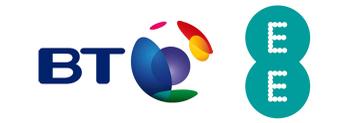Earlier today the UK's Competition and Markets Authority (CMA) provisionally cleared the merger of BT and mobile operator EE. The reasoning behind the decision is that the deal was "not expected to result in a substantial lessening of competition in any market in the UK". It first came to light that BT and EE were in discussions just under a year ago. The subsequent agreement was announced in February this year.
BT has welcomed the decision by the CMA and will now be able to forge ahead to become a so-called 'quad player' covering fixed-line phones, broadband, mobile and TV – like rivals Sky and Virgin. BT's current business was judged to not overlap significantly with EE's operations. However BT's reach in the UK will become bigger than its rivals in many ways; EE is the biggest mobile operator and BT was already the biggest fixed line telephony and broadband player.
Of course BT denies that the EE acquisition is anything but good for the UK as a whole. Gavin Patterson, the BT CEO, said "We're pleased that the CMA has provisionally approved BT's acquisition of EE. The combined BT and EE will be good for the UK, providing investment and ensuring consumers and businesses can benefit from further innovation in a highly competitive market". With the EE acquisition, BT's customer base will grow from 10 million to nearly 35 million.
Today's provisional judgement doesn't guarantee the deal will succeed, the final approval is scheduled for 18th January, after which the deal should complete by March. The news gave a boost to BT shares, which hit a three month high today. However shareholders are probably waiting for an Ofcom decision, regarding whether Openreach should, or should not be split from BT, before they pop open the champagne. We will know the result of that decision by the end of this year.







